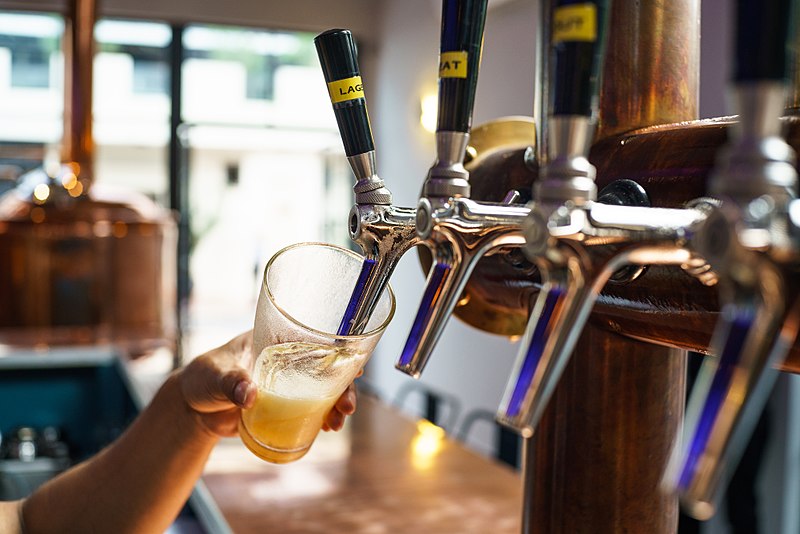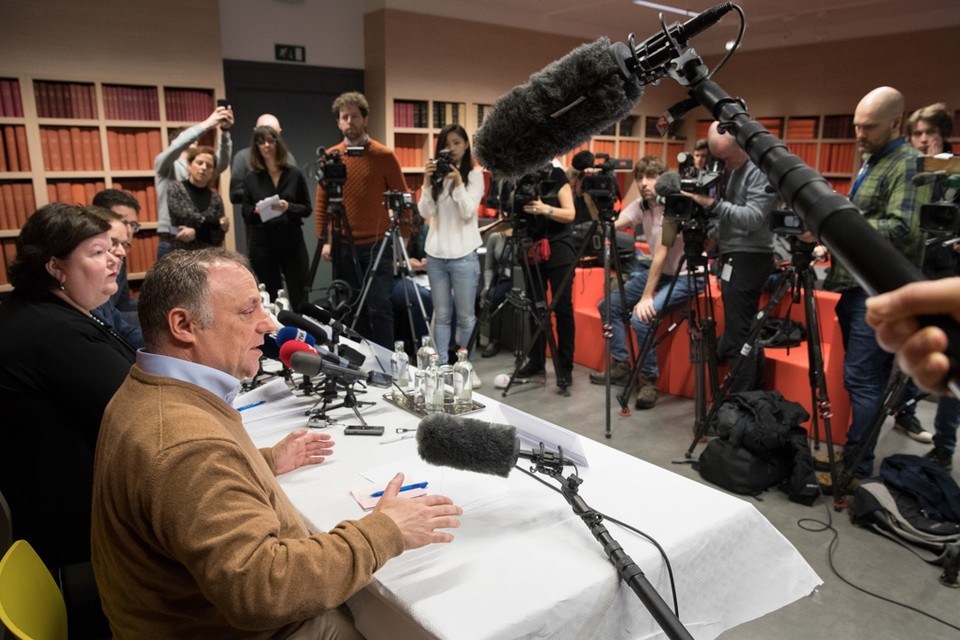First, to get it out the way, you may have noticed you got your newsletter a little late today, but there's a good reason for that.
Just as we were all surprised by the changes to Belgium's national coronavirus fighting measures last night, today brought more changes that we just had to include.
From Friday, Belgium's newest rules as a country go into force, mimicking measures that have already been in place in Brussels for over a week. More on that here.
In Brussels however, the situation has developed beyond that. All bars in the Brussels-Capital Region are shutting down from Thursday as part of a new round of restrictions imposed by leaders in the Belgian capital as they race to quench flaring coronavirus cases. More on that here.
So as we delve into the news everyone saw coming but nobody expected, here's a recap of what led us to this point, and what's new.
Belgium in Brief is a free daily roundup of the top stories to get you through your lunch break conversations. To receive it straight to your inbox every day, sign up below:
1. Belgium tightens measures: bubbles shrink, bars close early
Belgium is once again tightening its coronavirus measures in the face of rising infections, hospital admissions, and deaths.
Speaking to the press following a Consultative Committee meeting, Prime Minister Alexander De Croo and Health Minister Frank Vandenbroucke announced new measures, including shrinking bubbles and reduced hours for bars across the country.
"The situation is worrying and very serious," said De Croo. “We can see that the spread of the virus is accelerating considerably. We need to stop that acceleration as soon as possible.” The new measures can be read here.
2. Coronavirus: Brussels shuts down bars from tomorrow
All bars in the Brussels-Capital Region are shutting down from Thursday as part of a new round of restrictions imposed by leaders in the Belgian capital as they race to quench flaring coronavirus cases.
The shutdown will come into force from 7:00 AM on 8 October and will also include cafes and the cafeterias of sports clubs, regardless of whether they serve alcohol or not, as well as party and event halls, in measures set to remain in place for at least a month. Read more.
3. ‘Brussels ‘on the edge of code red’, expert warns
Brussels is approaching a code red on the Covid-19 barometer, which is currently being developed, infectious diseases expert Erika Vlieghe told Radio 1 on Wednesday morning.
The barometer, announced by former Prime Minister Sophie Wilmès at the last National Security Council on 23 September, is still being developed. While the colours have been decided on, the measures that go along with each colour haven’t yet. Read more.
4. Belgium’s tightening of coronavirus measures ‘really necessary,’ Marc Van Ranst says
The snap tightening of measures to fight the coronavirus were necessary and are expected to yield results, top Belgian virologist Marc Van Ranst said.
Belgium on Tuesday announced stricter measures concerning social contacts and ordered bars and cafés to close down at 11:00 PM, in a nationwide expansion of a rule which up until now applied only in Brussels.
“The new measures were really necessary,” Van Ranst said. “Limiting social contacts to the family circle and the [measures] on the catering industry should have an impact.” Read more.
5. Cheatsheet: How the latest rule of 4 works
Following Tuesday’s announcement of the stricter coronavirus measures in Belgium, the Crisis Centre gave some tips on how people can safely receive the four guests they are now allowed to invite in their homes. Here's what you need to know.
6. Belgium’s national rail moves to make its stations more accessible
Flemish public transport company De Lijn’s employees will go on a 24-hour strike this Friday to protest privatisation and potential lay-offs.
De Lijn operates buses, trams and light rail vehicles throughout Flanders’ larger cities, including Antwerp, Bruges, Ghent and Louvain. Read more.
7. Pandemic could hamper EU’s progress on reducing plastic waste
The current pandemic of Covid-19 could hamper or even reverse progress made in the EU to reduce plastic waste, a new report from the Court of Auditors of the EU has warned.
Together with other problems, the Court says, that means the EU is at risk of missing its targets for the recycling of plastic waste by 2025 and 2030.
In the process of updating its plastic waste strategy of 2018, the EU has set new targets for the proportion of plastic waste being recycled to 50% by 2025, and 55% by 2030. Read more.
Jules Johnston
The Brussels Times



